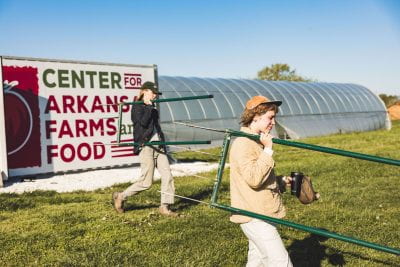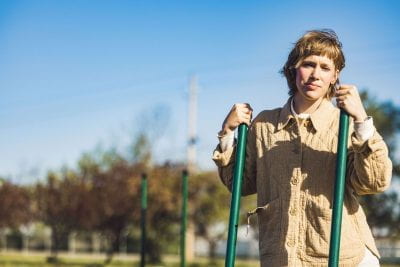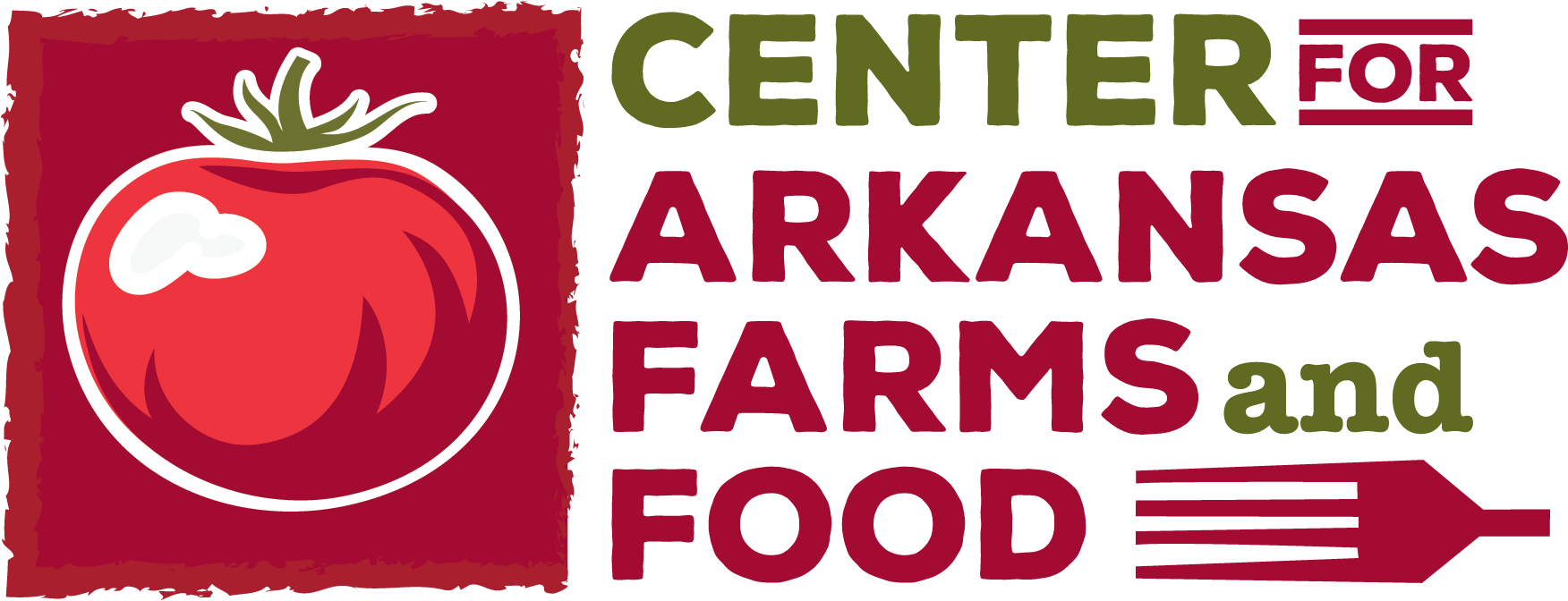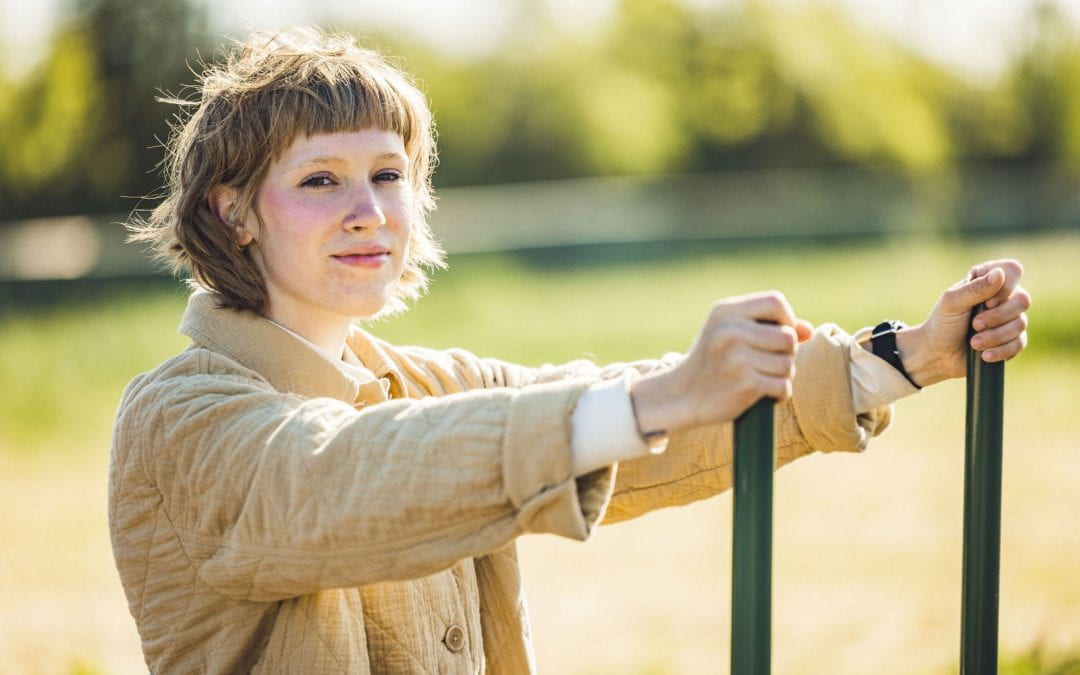A farm apprenticeship opportunity in Maine changed the course of Emma’s life. Before that, she had worked in the food service industry, at local flower shops, as a photographer’s assistant, and in coffee marketing.
Born and raised in the southern Arkansas town of Arkadelphia, Emma moved with her family to the mountains of Virginia during high school. It was there, after graduation, that some of her friends started farming. These friends and family members helped connect her with farm opportunities, some of which included travel. Emma helped with harvesting and worked at farmers’ markets for various farms. Mainly she worked for a small permaculture farm in the New River Valley region of Virginia. She apprenticed at Darthia Farm in Maine for a year with WWOOF. All of this led to the decision to pursue farming as a life direction and to apply for the CAFF Farm School.
 Emma most loves the slow lifestyle and fresh food of farm life. She has a deep curiosity about why and when things happen in nature. Her passion is for the protection of people and the planet. “I want everyone to have a chance to find peace, “she says. “Intersectional Environmentalism is something I cling to in uncertain times.”
Emma most loves the slow lifestyle and fresh food of farm life. She has a deep curiosity about why and when things happen in nature. Her passion is for the protection of people and the planet. “I want everyone to have a chance to find peace, “she says. “Intersectional Environmentalism is something I cling to in uncertain times.”
Emma believes that sustainable farming is a crucial part and that it provides people the ability to expand anywhere and everywhere. “Farming is community. It encompasses marketing, sharing, collaborating, and exploring,” she says. For Emma, farming is everything, from a way to eat good food to a personal spiritual practice. “It’s full of possibilities.”

When asked about goals, hers include being in a position to feed her community in addition to herself. After completing the CAFF Farm School program, she’d like to pursue further education and eventually work in teaching. Activism is also a big part of her plans. Her farming goals are pretty simple. “Eventually, I would love to have my plot of land somewhere and create a haven.”
 When asked what advice she can give to others interested in farming or considering the CAFF Farm School, she advises overcoming hesitancy. “It’s essential not to be afraid of taking any step in the right direction,” she says, adding, “Everything else will follow.”
When asked what advice she can give to others interested in farming or considering the CAFF Farm School, she advises overcoming hesitancy. “It’s essential not to be afraid of taking any step in the right direction,” she says, adding, “Everything else will follow.”
The CAFF Farm School teaches sustainable, small-scale farming at the CAFF model farm in Fayetteville, Arkansas. Students get hands-on farming experience and courses in farming entrepreneurship that include business, marketing, legal matters, market development, food handling, soil health, and other curricula vital to farming successfully. Students complete the 11-month program with skills needed to start farming and a business plan. CAFF partners with The Northwest Arkansas Land Trust to help students obtain farmland and The Food Conservancy to assist with distribution. In addition to the CAFF Farm School, other programs include classes for beginning farmers, which are offered on Zoom, and CAFF Farm Apprenticeships with Arkansas mentor farms. CAFF (The Center for Arkansas Farms and Food) is part of the Northwest Arkansas Food System initiative and the University of Arkansas System, Division of Agriculture. More info on all programs is available at LearnToFarm.org.


Recent Comments